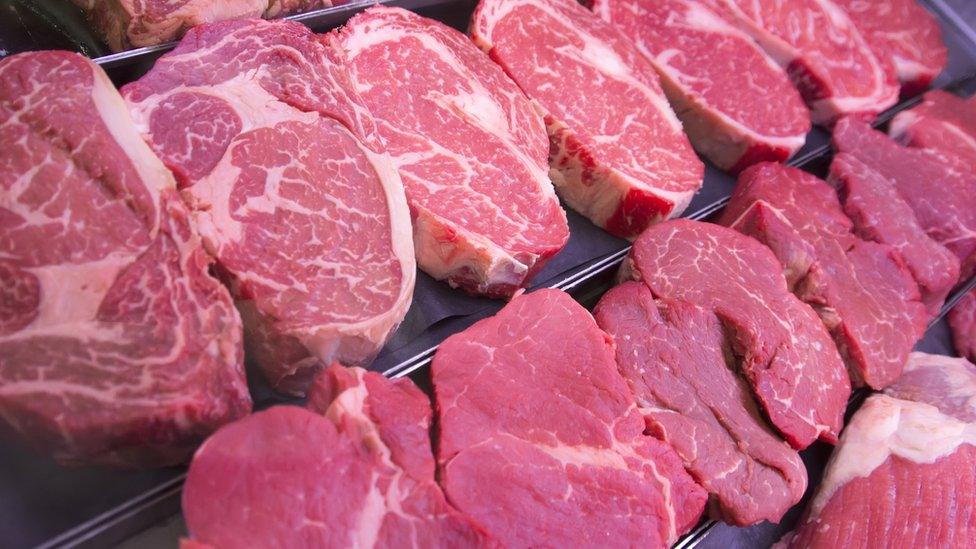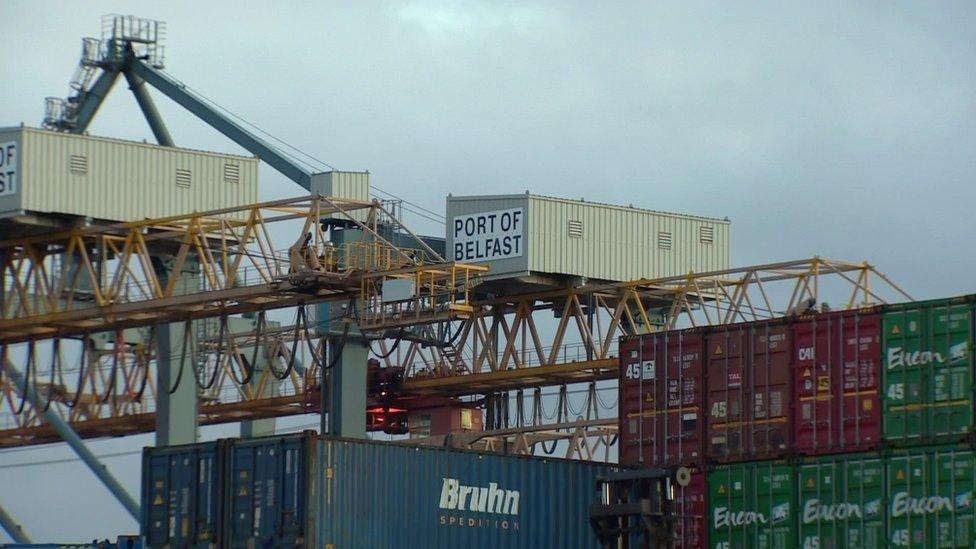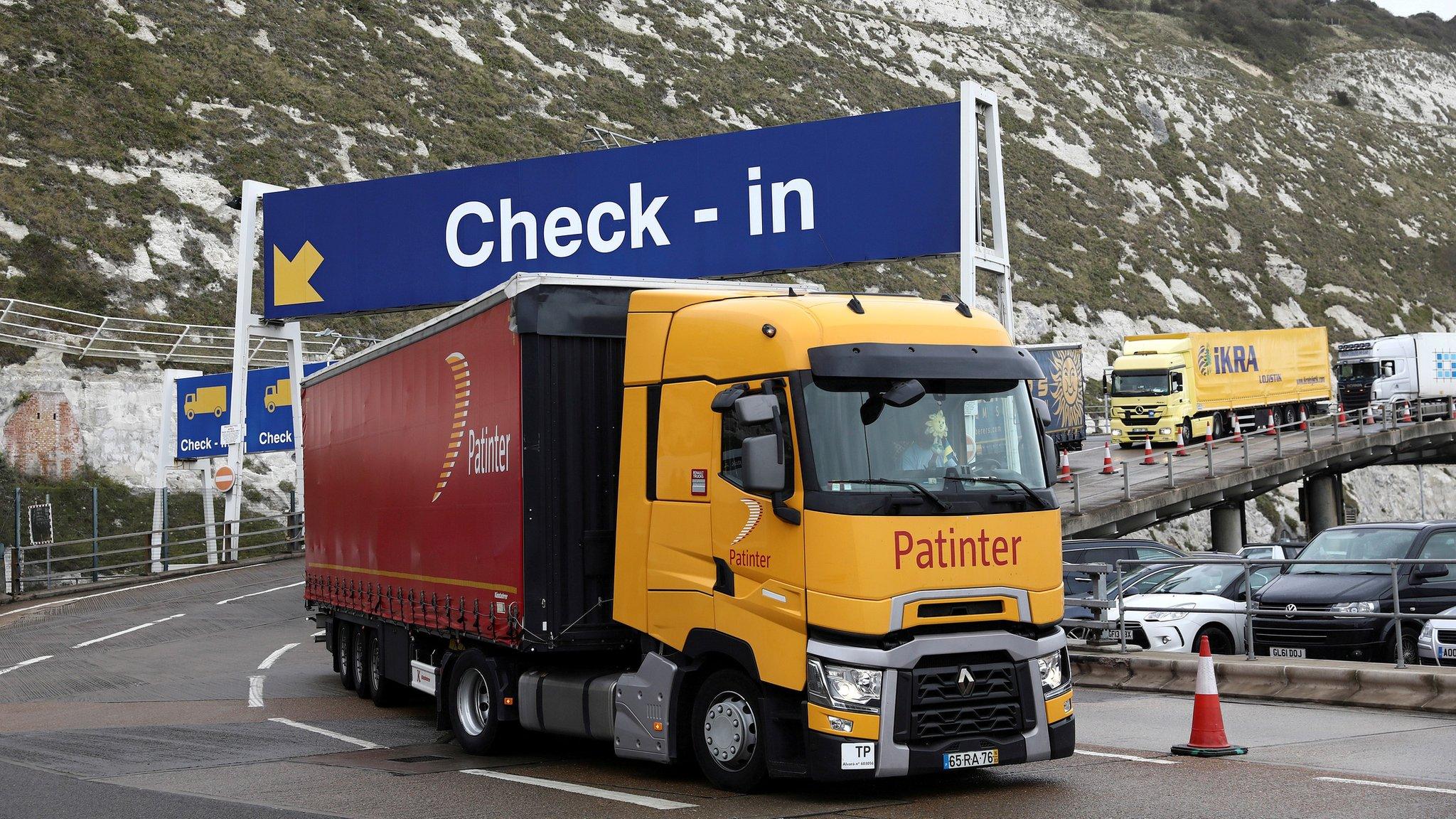Brexit: Red meat industry 'cannot be ready at end of transition'
- Published
- comments

The red meat industry in NI generated sales of £1.4bn in 2018
Northern Ireland's red meat industry has told the UK government that it cannot be ready for Brexit at the end of transition and asked for a year-long grace period.
Meanwhile, government trade advisers have said about 500,000 NI-GB goods shipments a year will need new export paperwork.
The NI red meat industry generates more than £1bn in sales.
It also employs thousands of workers in Northern Ireland.
Its representative body said so much advice had arrived so close to the deadline that there is a risk of it "overwhelming" businesses.
Concerns include whether new IT systems for trade will be ready and whether there will be enough vets in Britain to sign off shipments moving from Britain to Northern Ireland.
It is also worried about the lack of time to train staff in new systems and agreed definitions on GB to NI imports which might attract tariffs.
The meat industry in Northern Ireland sends the bulk of its product to Britain.
But it also imports a lot of meat from there for further processing in Northern Ireland.
In its letter to the cabinet office minister Michael Gove, the Northern Ireland Meat Exporters Association said the lack of information it had received was "alarming" and claimed government officials accepted as much.
"With less than one month until the deadline, government cannot expect our meat industry to be ready for this change while it continues to amend policy, write legislation, draft guidance, develop systems and negotiate with the EU," said spokesman Conall Donnelly.
"An honest recognition of this should be the starting point for discussions about how this situation needs to be addressed."
Latest figures show that Northern Ireland's red meat processors generated sales of beef and sheep meat worth £1.4bn in 2018, with almost £1bn of it going to Great Britain.
The sector employs more than 5,000 people.
Northern Ireland imports around £250m a year in meat from Britain for further processing in Northern Ireland.
Export paperwork
Meanwhile, around 500,000 NI-GB goods shipments a year will need new export paperwork, according to government trade advisors.
The government has promised "unfettered access" for NI businesses sending goods to GB at the end of Brexit transition.

Northern Ireland will be enforcing EU customs rules at its ports under the terms of the NI Protocol
However that was always qualified by saying some shipments would have requirements related to international treaties or other special procedures.
Almost all goods moving the other direction, from GB-NI, will need customs declarations.
This will apply from 1 January whether or not there is a trade deal between the EU and UK.
Northern Ireland will be enforcing EU customs rules at its ports under the terms of the NI Protocol, agreed by the EU and UK last year.
Until now, it had not been clear what proportion of NI-GB trade would have new requirements.
However, in a presentation this week, the government's Trader Support Service (TSS) said it would impact about 500,000 shipments out of 14m, which is about 3.5%.
It is understood that will mainly concern shipments of alcoholic drinks.
Shanker Singham from the TSS gave the example of goods being moved from a bonded warehouse in Northern Ireland to a bonded warehouse in Great Britain.
Related topics
- Published1 December 2020

- Published1 January 2021

- Published30 December 2020
